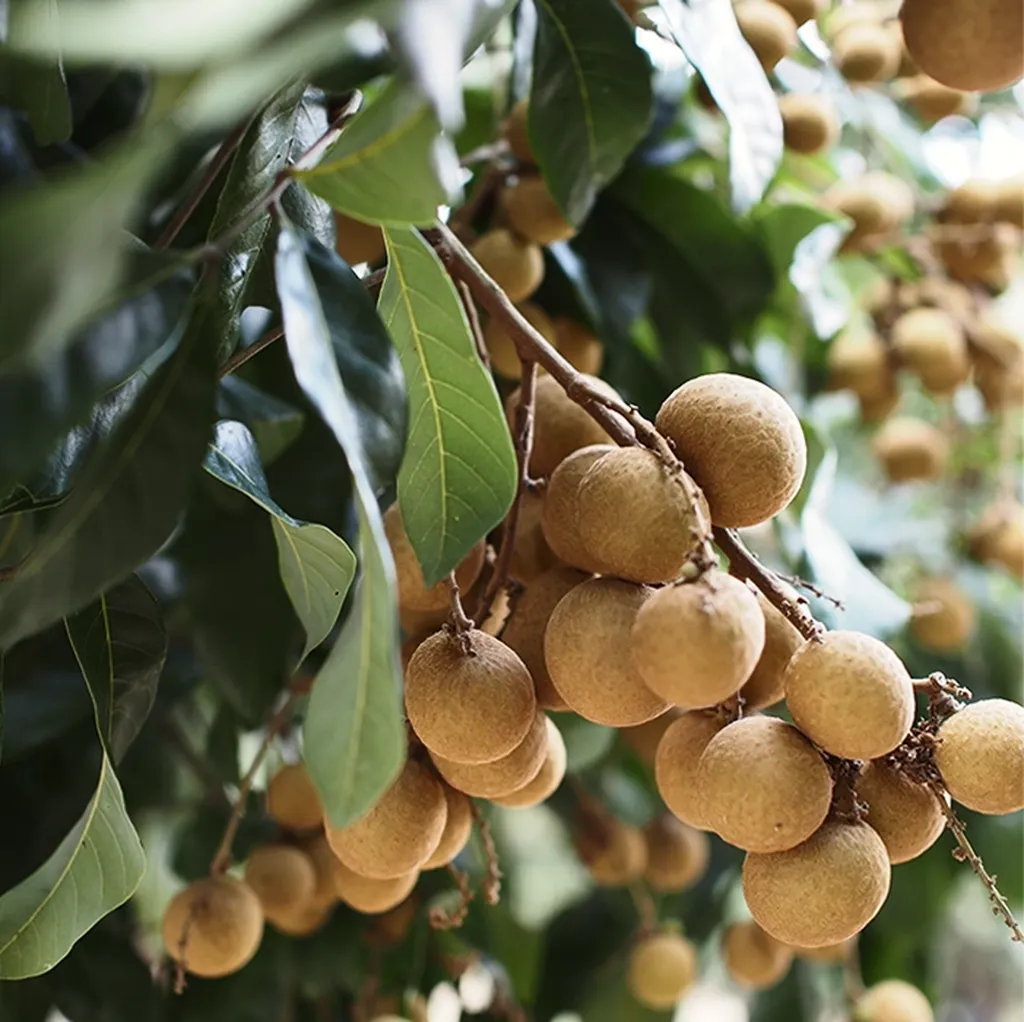In the heart of Thailand, researchers have uncovered a novel method to transform the humble longan fruit into a valuable prebiotic ingredient, potentially revolutionizing the food and energy sectors. Nalapat Leangnim, a biochemist from Chiang Mai University, has led a study that could turn this tropical fruit into a sustainable resource for producing neokestose, a rare sugar with significant health benefits.
The research, published in the journal *Carbohydrate Polymer Technologies and Applications* (which translates to “Carbohydrate Polymer Technologies and Applications” in English), focuses on the sequential fermentative production of neokestose using Daw longan (Dimocarpus longan L. cv. Daw) as the sole substrate. This approach not only utilizes an abundant agricultural resource but also offers a sustainable alternative to traditional prebiotic production methods.
Neokestose, a type of fructooligosaccharide, is known for its prebiotic properties, promoting the growth of beneficial gut bacteria. “This research opens up new possibilities for utilizing longan, a fruit that is widely cultivated in Thailand but often underutilized,” said Leangnim. “By converting it into neokestose, we can add value to the fruit and create a sustainable source of prebiotics.”
The study also delves into the physicochemical properties of purified neokestose, providing a comprehensive understanding of its characteristics. This knowledge is crucial for its potential applications in the food industry, where prebiotics are increasingly sought after for their health benefits.
Beyond the food sector, the research has implications for the energy industry as well. Prebiotics like neokestose can be used in the production of biofuels, offering a renewable and sustainable alternative to fossil fuels. “The potential for neokestose extends beyond human health,” Leangnim explained. “Its properties make it a promising candidate for various industrial applications, including biofuel production.”
The commercial impact of this research could be substantial. With Thailand being one of the world’s largest producers of longan, the ability to convert this fruit into a high-value prebiotic could create new economic opportunities for farmers and the agricultural sector. Moreover, the sustainable production of neokestose aligns with global efforts to reduce reliance on non-renewable resources.
As the world seeks innovative solutions to pressing environmental and health challenges, research like this offers a glimpse into a future where agriculture and technology converge to create sustainable and valuable resources. The study by Leangnim and his team not only highlights the potential of longan but also underscores the importance of exploring alternative uses for agricultural products.
In the ever-evolving landscape of agritech, this research stands as a testament to the power of innovation and the potential for transforming everyday resources into groundbreaking solutions. As the world continues to grapple with the challenges of sustainability and health, the insights from this study could pave the way for a more resilient and resourceful future.

